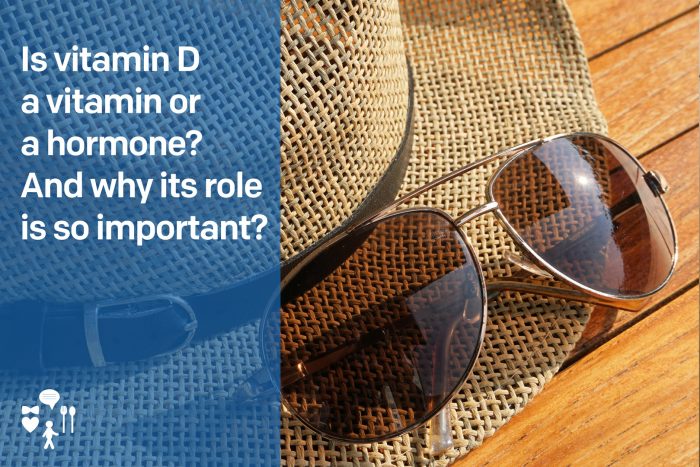Contrary to its name, vitamin D is actually not a vitamin but a hormone that is synthesized by sunlight.
Vitamin D promotes the body’s absorption of calcium, which is essential for the normal development and maintenance of bones and teeth. The body must maintain an adequate level of calcium in order to form and sustain strong bones, especially in children and the elderly. It protects against infections by keeping your immune system healthy. It also improves the function of muscles, which can improve your balance and decrease the likelihood of falling and suffering a fracture.
There are two sources of vitamin D: food (mainly eggs, butter, liver and fatty fish) and synthesis by the body in the skin on exposure to ultraviolet rays from the sun. Sunlight stimulates the body to produce vitamin D. Vitamin D is unusual in that, unlike other vitamins, it is produced by the body as well as being available in food.
Calcium surplus and vitamin D deficiency
There is growing evidence that vitamin D deficiency may play a role in prostate cancer development. Data suggesting a link between vitamin D deficiency and increased risk of prostate cancer can be outlined as follows:
- The Japanese have one of the lowest rates of prostate cancer, and their diet is rich in vitamin D (fish).
- Elevated consumption of dairy products that are rich in calcium has been associated with an increased risk of prostate cancer; calcium depresses blood levels of vitamin D.
- As we age, our bodies are less able to manufacture vitamin D. This may partially explain why prostate cancer develops in older men.
- African Americans have the highest rates of prostate cancer in the world. The melatonin in black skin may interfere with the synthesis of vitamin D.
- Men who live in colder countries, where there are fewer hours of sunlight, are more likely to develop prostate cancer.
Recommendations
Despite the consumption of foods rich in vitamin D, its intake contribution is insufficient. Because of the northern latitude of Canada and the weak sunlight in autumn and winter, it is recommended that all Quebecers, men with prostate cancer or those at risk of developing one to take vitamin D supplements. Who is particularly at risk?
You’re probably not getting enough vitamin D if:
- You are over 50
- You have dark skin
- You don’t go outside very much
- You wear clothing covering most of your skin
If you fall into one of these categories, Talk to your doctor about whether taking 1000 international units (IU) a day in the fall and winter or all year round is right for you.
Can you have too much of a good thing?
Having either too little or too much vitamin D can cause health problems. Current evidence suggests that taking a supplement of 1000 IU of vitamin D a day may help reduce your risk of cancer with the least chance of harm.
Take the time to visit each of our pages on this website, as well as our YouTube channel, in order to get familiar with the disease with our expert lectures, our section on available resources, the support that is offered to you.
Do you have any questions or concerns? Above all, do not hesitate. Contact us at 1 855 899-2873 to discuss with a nurse specializing in uro-oncology. It’s simple and free, like all our services.
Pages of our site that might interest you
Want to know more? Just click on one of the links below.
Anti-cancer foods for men
Am I at risk
Signs and symptoms
PROCURE news that might interest you
Each week, we publish a blog article. Here are a few for you.
5 facts to know about prostatitis
5 facts to know about large prostate (BPH)
What is an anti-inflammatory diet?
Sources and references:
Prostate Cancer – Understand the Disease and Its Treatment
NIH-National Cancer Institute-October 31, 2017
Osteoporosis Canada
Canadian Cancer Society
Written by PROCURE. © All rights reserved – 2021



 ADDITIONAL RESOURCES
ADDITIONAL RESOURCES

